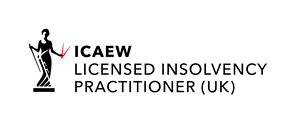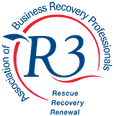Individual Insolvency
Personal insolvency advice for clients in London
What is an Individual Voluntary Arrangement (IVA)?
An IVA is a formal arrangement with your unsecured creditors that provides breathing space for the business; it assists in cash flow management and can involve debt forgiveness.
One of the licensed insolvency practitioners at Cullen & Co, Epsom, acts first as an advisor, making sure an IVA is right for you as the individual (debtor); secondly, as the nominee to assist you to draft the IVA proposal, then as the supervisor once the IVA is approved.
In majority of the IVA cases, the debtor makes affordable agreed monthly payments to the supervisor who in turn distributes the money on a pro-rata basis amongst the creditors. The term can vary, typically it can be up to five years. The amount paid to creditors can be a repayment in full or a percentage of the debt.
Some IVAs will involve other payments from the debtor into the IVA, this could involve lump sum payments, perhaps due to the sale of an asset.
The IVA process:
Speak to one of our licensed insolvency practitioners.
They will act as an advisor first, discussing and reviewing your position, then speaking through the options.
The insolvency practitioner will work with you to draft a proposal to creditors. This will detail:
- The history of the business, the reasons why it is in financial difficulty and how it will avoid future problems
- The current financial position of the business and predictions of future cash flows
- Your assets and liabilities and a list of creditors
- The amount you can afford to pay into the IVA, the term, and the resulting return to creditors
The insolvency practitioner, acting as the nominee, then issues the proposal to creditors.
The creditors vote to either approve, reject or modify the IVA. At least 75% of the voting creditors need to vote in favour of the IVA for it to be approved.
If approved, the IVA starts and the debtor
needs to adhere to the terms, making the payments as agreed. The insolvency practitioner acts as the supervisor, ensuring the payments are received, the creditors’ claims are agreed and distributions are made accordingly.
The IVA is completed once the terms have been met and the supervisor
issues the final report and a certificate of completion.



Advantages of an IVA
An IVA has a number of advantages, not only for you but your creditors:
- You are still able to run your business (the insolvency practitioner acts just as the supervisor of the IVA)
- The IVA provides a breathing space from creditors; once approved, all the creditors are bound by the IVA and cannot take legal action
- You pay an affordable monthly payment each month
- The creditors’ debts are frozen - no interest or charges can be applied once the IVA starts
- An IVA is a cost-effective alternative to other insolvency procedures
- Some of the debt can be written off
- There is less stigma to an IVA than bankruptcy
Disadvantages of an IVA
The consequences of you entering into an IVA should be noted:
- At least 75% of the creditors that vote need to approve the IVA; there is a risk that the creditors may not agree
- You will have to adhere to the terms of the IVA otherwise the insolvency practitioner will have to terminate the arrangement, which could lead to you being declared bankrupt
- The IVA is registered on the Individual Insolvency Register and will be removed three months after the IVA ends; your credit file will also show the IVA for a minimum of six years from the date of arrangement, and longer if the arrangement lasts more than six years
- During the IVA term, you will find it more difficult to seek credit


What is bankruptcy?
If you are unable to pay your creditors then bankruptcy enables your debts to be written off.
Creditors who are owed £5,000 or more can petition for your bankruptcy, alternatively you can declare yourself bankrupt by applying online. Your application will be reviewed by an adjudicator (working at The Insolvency Service - a government agency) and granted if appropriate. Thereafter, you may be interviewed by the official receiver (an officer of the bankruptcy court) with respect to your situation.
The cost of making yourself bankrupt is £680. Normally you are discharged (released) from bankruptcy after a year.
Advantages of bankruptcy
- Your debts will be written off
- You will normally be discharged after one year
- You usually keep any money you’ve put into a pension



Disadvantages of bankruptcy
Your assets are to be realised, which may result in you losing your home.
You may be required to make monthly payments of surplus income into your bankruptcy estate, over a three-year period.
You may be restricted on working. If you are bankrupt, you cannot apply for jobs such as:
- Charity trustee
- Justice of the Peace
- Registrar of births, marriages and deaths
- MOT authorised examiner
You have to disclose your bankruptcy if you wish to open a new bank account
There are restrictions you must follow if you are bankrupt. You won't be able to:
- Obtain credit of more than £500 without disclosing your bankruptcy to the lender
- Act as a director of a company
- Create, manage or promote a company without the court’s permission
- Manage a business with a different name without telling those you do business with that you’re bankrupt
Your bankruptcy is registered on the Individual Insolvency Register. It will be removed three months after the bankruptcy ends. Your credit file will also show the bankruptcy for a minimum of six years from the date the bankruptcy order was made. During the bankruptcy term, you will find it more difficult to seek credit.
If you require quality personal insolvency advice in London, call Cullen & Co in Epsom on
0203 8877 200
Thank you for contacting us.
We will get back to you as soon as possible
We will get back to you as soon as possible
Oops, there was an error sending your message.
Please try again later
Please try again later


Cullen & Co UK Limited is a limited liability company registered in England and Wales with registration number 10496128.
Registered Office: 197 Kingston Road, Epsom, Surrey, KT19 0AB
Registered Office: 197 Kingston Road, Epsom, Surrey, KT19 0AB
Directors: Lauren R Cullen MAAT FCA MABRP and Anthony J Cullen BSc (Hons).
Consultant: T J Thompson
L R Cullen is licensed as an insolvency practitioner in the UK by the Institute of Chartered Accountants in England and Wales.
| Privacy Policy |
© 2024. The content on this website is owned by us and our licensors. Do not copy any content (including images) without our consent.

